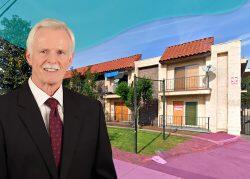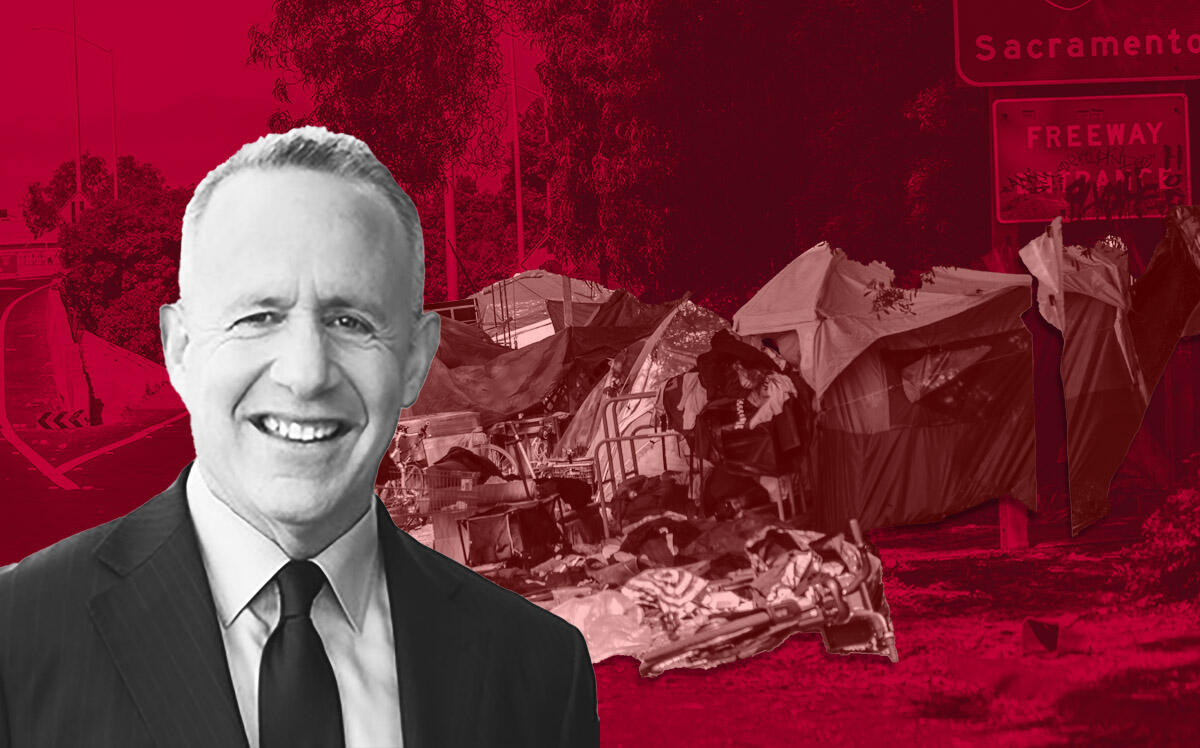Sacramento is considering a first-of-its-kind legal mandate to provide housing for all of its residents – who would also have to accept the housing on offer – sparking a heated debate that could spread statewide.
Comparing the right to housing with the right to a public school education, Sacramento Mayor Darrell Steinberg told the Bay Area News Group that a legal requirement “sends important signals” that housing is “a life or death essential.”
“Right now the law says that everything we do around housing and building more housing and/or building more shelter is voluntary and optional,” he said. “And I fundamentally believe that if we had a legal requirement for all of us at all levels of government to produce more, we would.”
The legislation will head to the city council for a vote later this year and would go into effect in 2023. If passed as currently written, it would require the capital city, which has committed $100 million to fighting homelessness over the next two years, to offer a permanent housing spot to every unhoused resident. If a permanent spot isn’t available, the law would allow the city to offer beds in a shelter, hotel, tiny home or sanctioned tent encampment, but the temporary fix must be combined with a long-term plan for permanent housing. Those who do not get a temporary spot could file a complaint in court.
An unhoused person who rejects two different offered options for housing, which Steinberg said would allow pets, possessions and partners to be relocated as well, will have their tent encampments cleared. It is this requirement that has roused concerns among homeless advocates.
“It sounds like they want to be able to take people from where they are, move them wherever they say they should be, and call it a ‘right to housing,’” Eric Tars, an attorney with the National Law Center on Homelessness & Poverty, told the Los Angeles Times. “That doesn’t sit well with me.”
Steinberg said that the obligation to come indoors is worthwhile, even though it makes “an already challenging issue even more challenging.”
“Living outdoors is not safe, it is not healthy, it is not dignified and it shortens lives,” he said. “And it has huge impacts on neighbors and surrounding neighborhoods and in business corridors.”
Last year, Governor Gavin Newsom vetoed a similar statewide policy due to its $10-billion-plus annual price tag. Steinberg said “important ideas take their time to have their day” but that he hoped his idea would inspire other legislators. Faced with a statewide homelessness crisis, California cities also are looking at other innovative ways to keep vulnerable renters housed or transform hotels into permanent housing using funding from the state’s Project Homekey funding.
Steinberg would use federal and state dollars to create the new housing for homeless people and said city residents would be more likely to vote for future taxes to pay for affordable home building if the city can show “greater progress” on getting the unhoused off the streets.
He hoped the legislation would also work its magic on NIMBY forces that have made building affordable housing so difficult and time consuming.
“If the law says and ultimately a court says you have to build more housing, then we’re going to have to confront the NIMBY question in a much more direct way,” he said. “We’re going to have to confront the overregulation question in a much more direct way.”
[Mercury News] – Emily Landes
Read more


